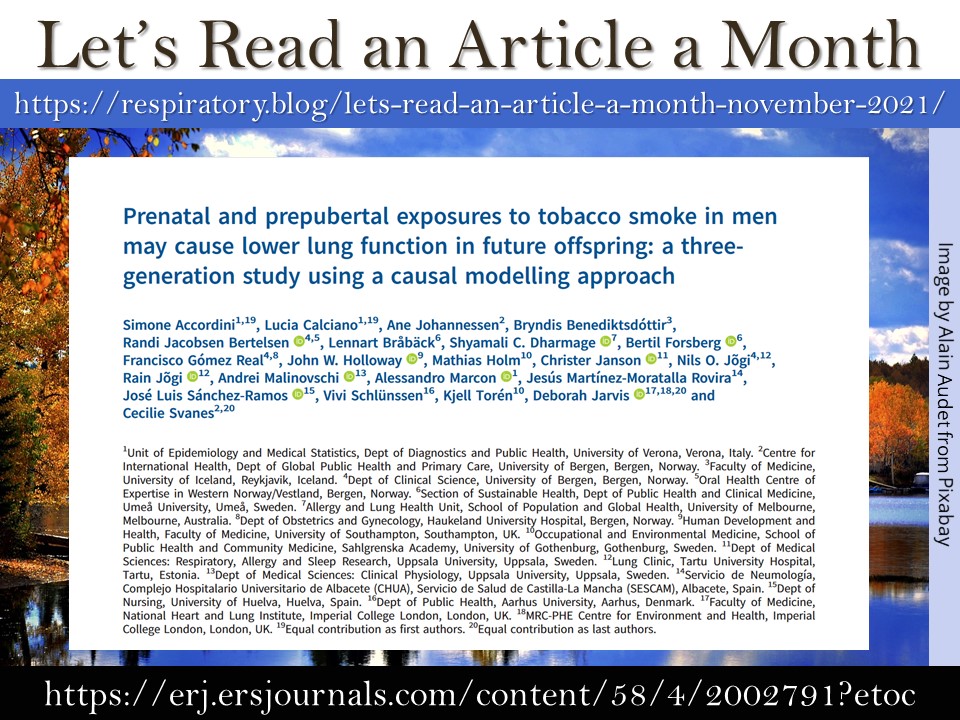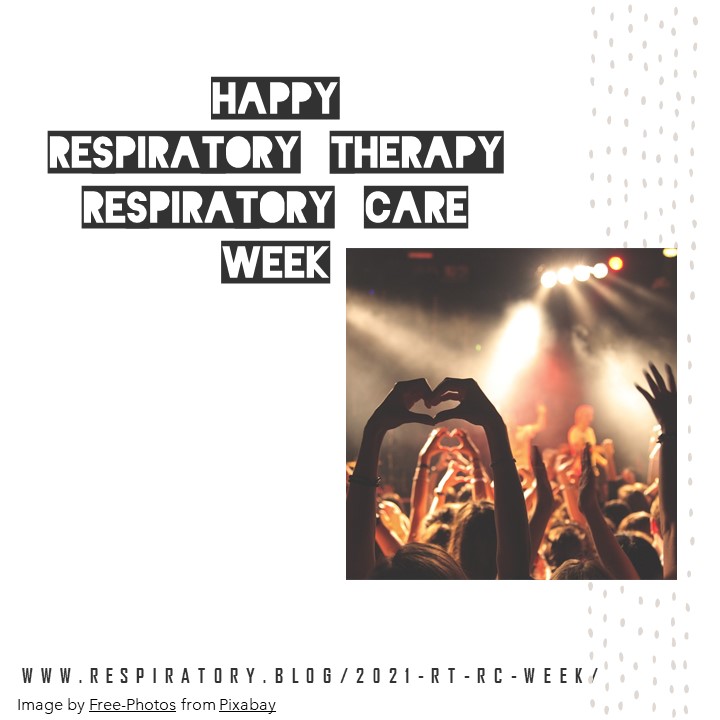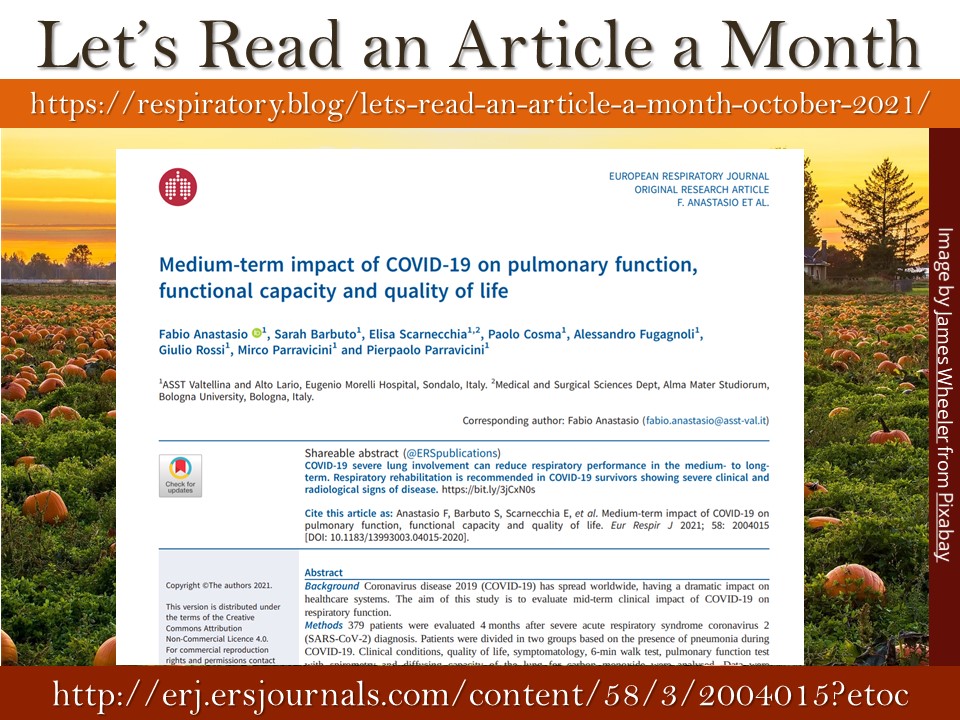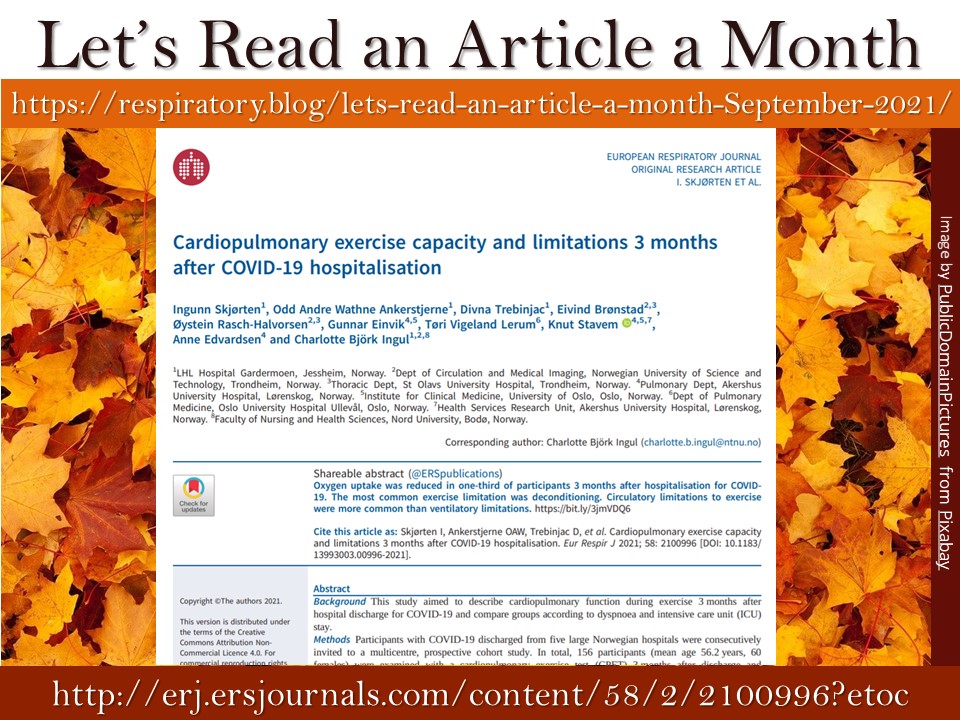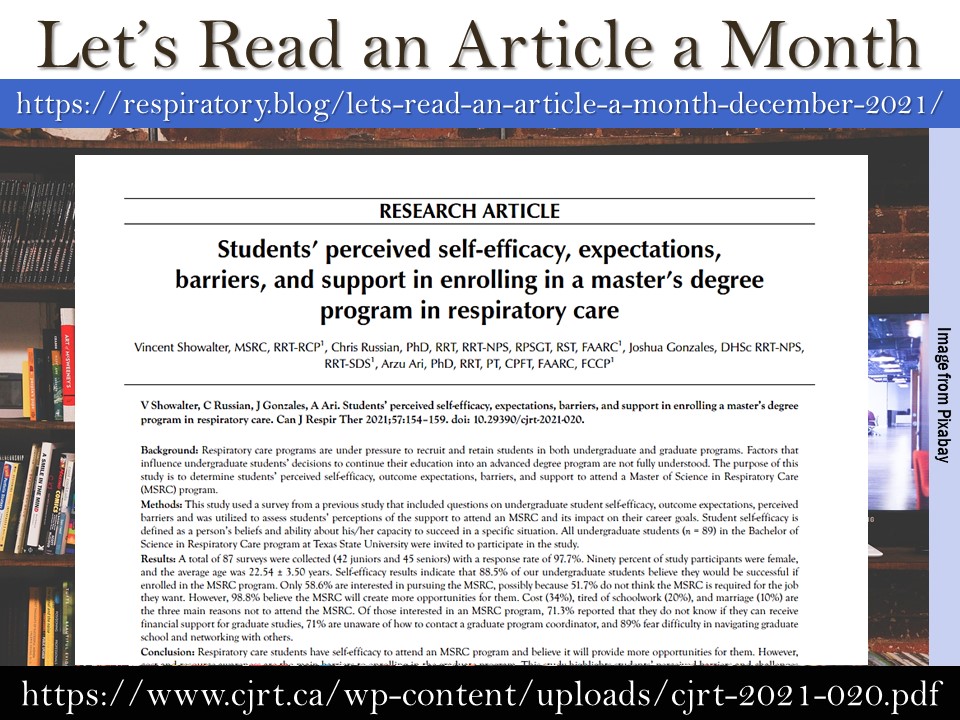
Every month I read an open-access article and then I share the associated link with my followers. This is to encourage clinicians to read articles, stay up to date, and grow.
This month’s paper tries to “determine students’ perceived self-efficacy, outcome expectations, barriers, and support to attend a Master of Science in Respiratory Care program” p154.
Students’ perceived self-efficacy, expectations, barriers, and support in enrolling in a master’s degree program in respiratory care
By: Vincent Showalter, MSRC, RRT-RCP, Chris Russian, PhD, RRT, RRT-NPS, RPSGT, RST, FAARC, Joshua Gonzales, DHSc RRT-NPS, RRT-SDS, and Arzu Ari, PhD, RRT, PT, CPFT, FAARC, FCCP
Canadian Journal of Respiratory Therapy (CJRT) Published online November 29, 2021
Link to the article: https://www.cjrt.ca/wp-content/uploads/cjrt–2021-020.pdf
I like and support the idea of respiratory therapists growing as individuals and, in turn, improving the field of respiratory therapy. In my mind, RTs graduate, work for some time and then they may acquire their masters if they are seeking new challenges or a new role. For example, I know a few RTs who after a few years decided to become Anesthesia Assistants to further specialize in airway management or because they preferred ‘office’ working hours. Some RTs naturally work their way to the managerial role while some decide to study a master’s program to more actively land in managerial or leadership roles. This article presented to me that there are students who are already planning ahead. Why I didn’t think about that? Perhaps I over-emphasized on barriers such as limitations of money and time. Maybe it is my thinking that students need to work in the role for about a year to consolidate the learned knowledge and skills from their school training. Of course, it is a possible path. I just didn’t consider it. I even know successful and intelligent RTs who studied respiratory therapy after completing their Master’s degree.
Many barriers may prevent students to consider a master’s degree. An interesting consideration is a comfort in one’s research knowledge. I could see that perspective. As a practising RT, with a Hons BSc, who tries to read an article a month, I still see an ocean of research related terms, concepts and information to educate myself about. The authors had noted “our results indicate undergraduate research self-efficacy could be improved for the current participants by ensuring early exposure and development of even basic or introductory research abilities and academic writing skills” p157. The authors discuss other solutions that can improve and encourage further education of SRTs. As always, please take the time to read the article as I cannot touch on all the data and results from the articles.
Happy reading and learning,
Farzad Refahi
December 4th, 2021
https://respiratory.blog/lets-read-an-article-a-month-december-2021/
